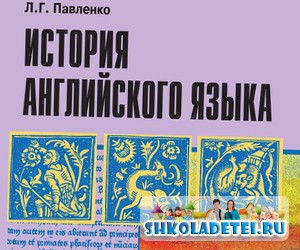Топики на английском для школьников "The History of English"
14 авг 
When the Angles and Saxons invaded Britain in the 5th century AD, they brought with them their language: 'English' or, as we call it now, Old English. Examples of Old English words are: sheep, dog, work, field, earth, the, is, you.
Two hundred years later, when St. Augustine brought Christianity to Britain in the 7th century, hundreds of Latin and Greek words were adapted into Old English: words such as hymn, priest, school, cook. In the 8th, 9th and 10th centuries, the Viking invaders added their own Norse words: get, wrong, leg, want, skin, same, low.
When the Norman Duke William defeated the Anglo-Saxon King Harold at the Battle of Hastings in 1066 and became King William I, French became the language of the educated classes for the next two or three centuries. This meant that there was no conservative influence on the English language, which was spoken mainly by uneducated people, and so the Middle English period (1150-1500) was characterised by tremendous changes.
Grammatically, most of the inflections or case endings of Old English disappeared, and word order therefore became of prime importance, as it is in modern English; at the same time, there was a massive transfer of French words into English (some estimates say over 10,000 words).
Latin, however, remained the language of the church and of education, and this mixing of Latin, French and native English is the reason why there are so many synonyms even today in the English language, e.g. ask (English), question (French), interrogate (Latin); time (English), age (French), epoch (Latin).
The introduction of the printing press in about 1476 gave rise to the need for a standard, uniform language that could be understood throughout the country. Modern English may be said to have begun in 1500, and the most important influence on the language was William Shakespeare, who proclaimed in Love's Labour s Lost, that: "Henceforth my wooing mind shall be expressed in russet yeas, and honest kersey noes", i.e. that 'pure' English was the language in which Englishmen best expressed themselves.
Ключевые теги новости: топики, английский язык



 Топики на английском для школьников "Why do We Learn English"
Топики на английском для школьников "Why do We Learn English"
 Топики на английском для школьников "Varieties of English"
Топики на английском для школьников "Varieties of English"
 Топики на английском для школьников "My Foreign Language Teacher"
Топики на английском для школьников "My Foreign Language Teacher"
 Топики на английском для школьников "British Literature"
Топики на английском для школьников "British Literature"
 Топики на английском. Как я изучаю английский язык. «How do I Learn English»
Топики на английском. Как я изучаю английский язык. «How do I Learn English»
